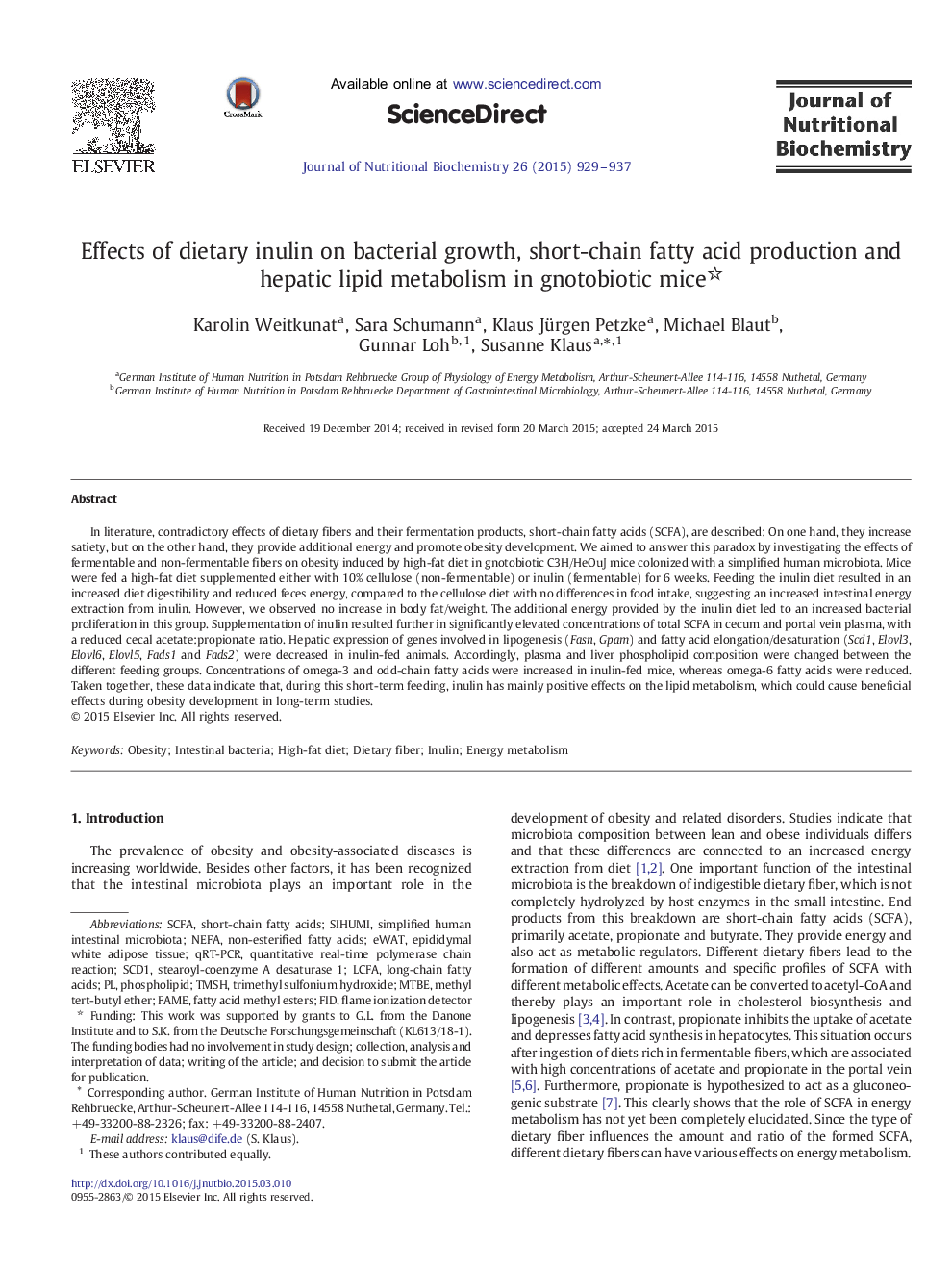| کد مقاله | کد نشریه | سال انتشار | مقاله انگلیسی | نسخه تمام متن |
|---|---|---|---|---|
| 1989626 | 1540645 | 2015 | 9 صفحه PDF | دانلود رایگان |

In literature, contradictory effects of dietary fibers and their fermentation products, short-chain fatty acids (SCFA), are described: On one hand, they increase satiety, but on the other hand, they provide additional energy and promote obesity development. We aimed to answer this paradox by investigating the effects of fermentable and non-fermentable fibers on obesity induced by high-fat diet in gnotobiotic C3H/HeOuJ mice colonized with a simplified human microbiota. Mice were fed a high-fat diet supplemented either with 10% cellulose (non-fermentable) or inulin (fermentable) for 6 weeks. Feeding the inulin diet resulted in an increased diet digestibility and reduced feces energy, compared to the cellulose diet with no differences in food intake, suggesting an increased intestinal energy extraction from inulin. However, we observed no increase in body fat/weight. The additional energy provided by the inulin diet led to an increased bacterial proliferation in this group. Supplementation of inulin resulted further in significantly elevated concentrations of total SCFA in cecum and portal vein plasma, with a reduced cecal acetate:propionate ratio. Hepatic expression of genes involved in lipogenesis (Fasn, Gpam) and fatty acid elongation/desaturation (Scd1, Elovl3, Elovl6, Elovl5, Fads1 and Fads2) were decreased in inulin-fed animals. Accordingly, plasma and liver phospholipid composition were changed between the different feeding groups. Concentrations of omega-3 and odd-chain fatty acids were increased in inulin-fed mice, whereas omega-6 fatty acids were reduced. Taken together, these data indicate that, during this short-term feeding, inulin has mainly positive effects on the lipid metabolism, which could cause beneficial effects during obesity development in long-term studies.
Journal: The Journal of Nutritional Biochemistry - Volume 26, Issue 9, September 2015, Pages 929–937